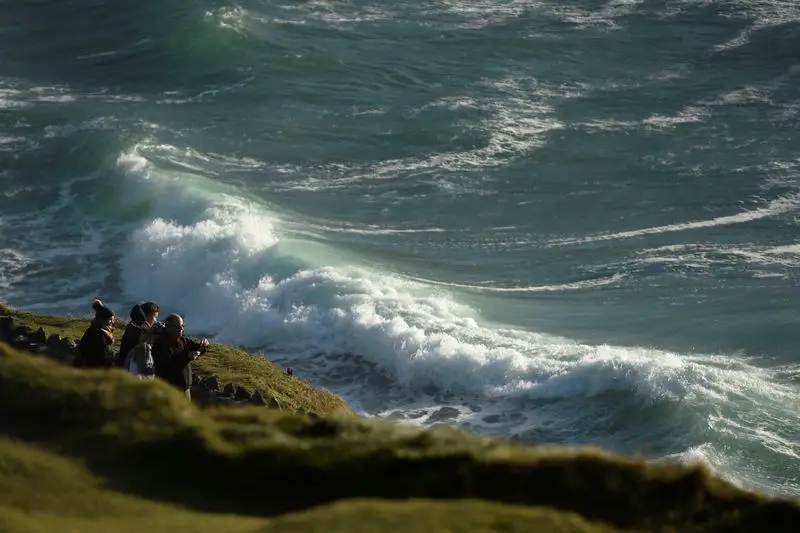COPENHAGEN (Reuters) – More than 40 climate scientists are urging Nordic ministers to prevent global warming from causing a major change in an Atlantic Ocean current, which could trigger abrupt shifts in weather patterns and damage ecosystems.
A collapse of the Atlantic Meridional Overturning Circulation, a system of ocean currents that transports warm water into the North Atlantic and provides Europe its mild climate, could put living conditions for people in the Arctic region and beyond at risk, according to the scientists.
“Such an ocean circulation change would have devastating and irreversible impacts especially for Nordic countries, but also for other parts of the world,” the scientists said in a letter on Saturday to the Nordic Council of Ministers, which comprises five countries, including Denmark and Sweden, and three autonomous territories.
The letter urges the council to actions that could involve calling for global greenhouse-gas emission cuts.
Several studies have suggested that the risk of the Atlantic current changing has been greatly underestimated, the scientists said, adding that there was a serious possibility of passing the tipping point in the next few decades.
“If Britain and Ireland become like northern Norway, (that) has tremendous consequences. Our finding is that this is not a low probability,” said professor Peter Ditlevsen at the University of Copenhagen, a signatory of the letter.
“This is not something you easily adapt to.”
A collapse of the ocean-current system would increase cooling of the Northern Hemisphere, raise Atlantic sea levels, drop precipitation over Europe and North America and shift monsoons in South America and Africa, according to the United Kingdom’s Met Office.
Global subsidies for fossil fuels reached a record $7 trillion in 2022, according to the International Monetary Fund.
Such subsidies show there is no credible effort to prevent such a climate disaster, said professor Stefan Rahmstorf from Germany’s Potsdam Institute for Climate Impact Research.
(Reporting by Louise Breusch Rasmussen and Ali Withers, editing by Rod Nickel)


Leave a Comment